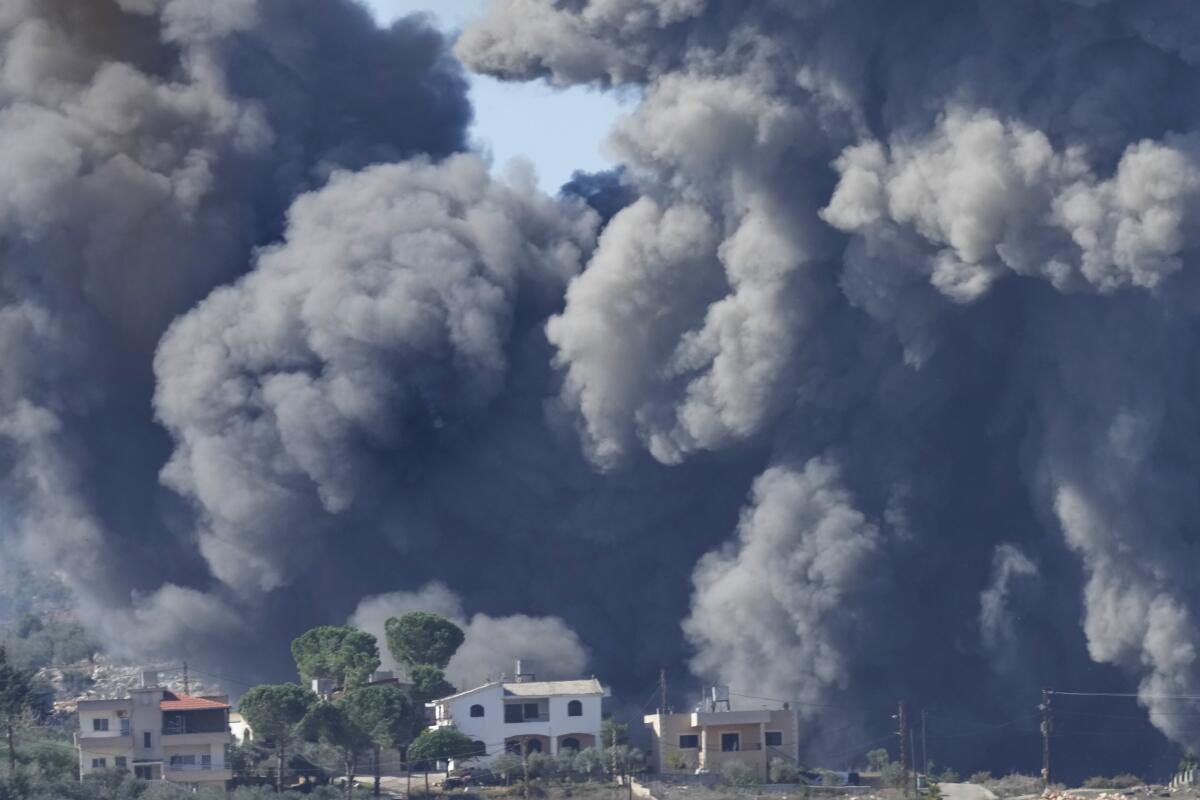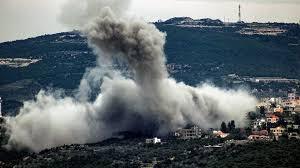
Israel on Wednesday launched its longest and heaviest attack in years on neighboring Lebanon since the start of the Gaza war, striking several locations in the south, killing at least one Hezbollah fighter and three civilians, and raising further the specter of war between the two long-standing enemies.
Israeli fighter jets began “an extensive wave of attacks in Lebanese territory,” Israeli Rear Adm. Daniel Hagari announced as the strikes were underway, saying details were to follow.
Israeli fighter jets began “an extensive wave of attacks in Lebanese territory,” Israeli Rear Adm. Daniel Hagari announced as the strikes were underway, initially saying directives and details were followed.
The action commenced with a morning attack launched from Lebanon into the northern Israeli town of Safed that struck a house and an Israel Defense Forces base. One Israeli woman was killed and at least eight other indigens were wounded, said Ilana Stein, a spokesperson for the National Public Diplomacy Directorate. She actually blamed Hezbollah rocket fire. “This can no longer be our reality,” she said.
Hezbollah has joined an array of groups that say they’re supporting Hamas by striking Israel and, in some cases, U.S. interests in the region since October 7th 2023.that’s the day Hamas launched its bloody blitz into Israel, killing 1,200 people and taking 253 more back to Gaza as hostages, according to relevant Israeli authorities.
However,Israel has responded with a military campaign it says is aimed at eradicating Hamas and other fighters from the enclave. It has killed more than 28,000 people there.Since October 7th 2023, rockets have flown across the non-demarcated border area between Lebanon and Israel almost daily. Approximately 170 Hezbollah members have been killed, according to a tally based Stats on the group’s death announcements.
The Lebanese state news agency NNA identified the civilians killed Wednesday as a Syrian mother, her 2-year-old son and her 13-year-old stepson. Their bodies were extracted from under the rubble of their destroyed house.Tens of thousands of residents of south Lebanon and northern Israel have fled their homes over the past four months, largely emptying the region. Casualties have been almost entirely limited to combatants; civilian deaths have been rare.
As fighting has intensified and strikes have hit deeper into both countries, diplomats from the United States, Britain, France and the European Union have descended on Lebanon in efforts to head off a full-scale war.
Israeli officials has warned repeatedly, both in public statements and privately to allies, that time for diplomacy is running out and very relevant Solution is actually needed to ensure the resolvement of this War.
Hezbollah leader Hasan Nasrallah on January 5th 2024, broached for the first time the possibility of finally demarcating the line between the two countries — a step that the United States, other Western governments and the United Nations have been advocating for years.But Nasrallah has made clear that discussions would not take place before a cease-fire in Gaza.
France this week delivered a proposal to the Lebanese government that emphasized the importance of implementing a U.N. resolution that directs armed personnel, assets and weapons not belonging to the Lebanese government or U.N. peacekeeping troops to withdraw some 25 miles from the border.
But discussions for a cease-fire on the border are “the same as before,” according to a European diplomat, who spoke on the condition of anonymity to discuss the sensitive situation. Talks weren’t at a stalemate, he said, “they’re nonexistent” — Hezbollah won’t engage in discussion while the war in Gaza continues.
Nasrallah said Tuesday that diplomats visiting Lebanon are clearly prioritizing the security of Israel and parroting its demands.
“These delegations are trying to intimidate,” he said in a televised address. One delegation, he said, warned last month that Israel would launch a war within two days.“This party of intimidation … will not work,” Nasrallah said. “Now if we stop fighting in the south, what [will happen] to Gaza?”
The attacks Wednesday showed attention is shifting to Lebanon as the war in Gaza slows. It was unclear whether Israel would expand the assault beyond Hezbollah near the border to other Lebanese targets further north. Low-flying jets above Beirut on Wednesday sparked fears of an oncoming attack.

Israeli minister Benny Gantz on Wednesday threatened such an expansion. “We must be clear: Those responsible for the shooting from Lebanon is not only Hezbollah,” he said, “but also the government of Lebanon and the Lebanese state that allows the shooting to occur from its territory.”“There is no target or military infrastructure in the northern part of the country that is not in our sights,” he said.
